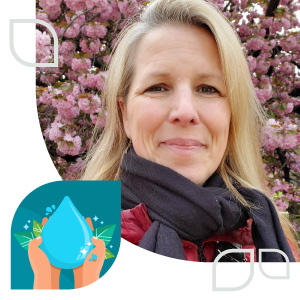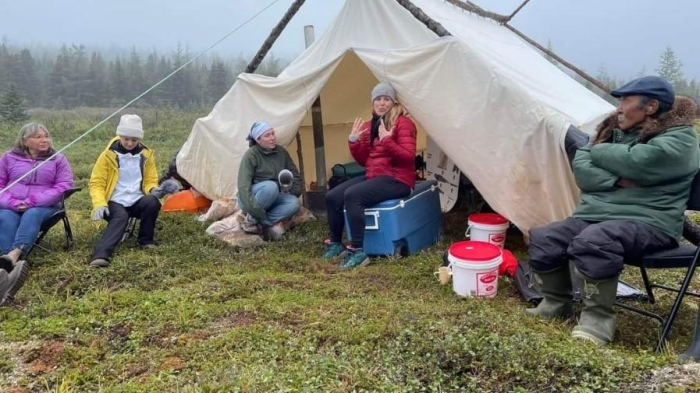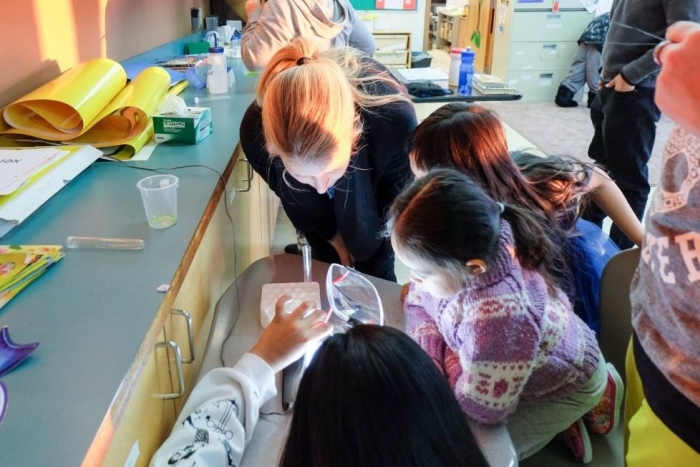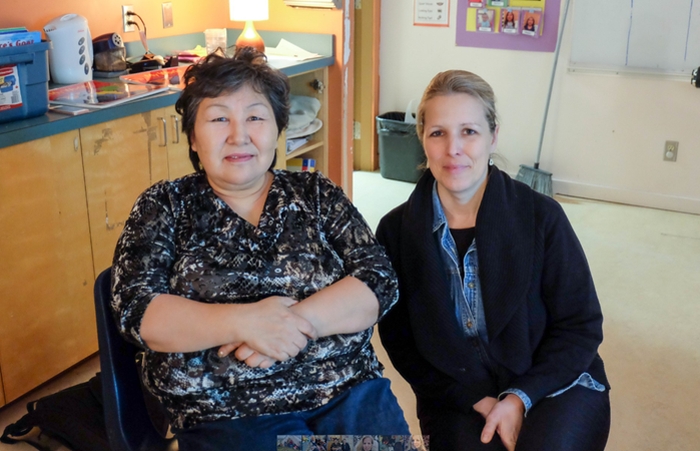Spotlight on science: Education at the heart of a better future
Profile of Magali Houde
Education at the heart of a better future

Magali Houde is humble when talking about her scientific career, which spans more than 20 years. Magali is an ecotoxicology specialist, and her primary interest is studying the impact of human activities on the aquatic environment. She enthusiastically agreed to talk about her experience to inspire young and old alike.
The impact that humans can have on wildlife and on the health of a wild animal population has interested Magali for as long as she can remember. In the early 2000s, she met Derek Muir, a researcher at ECCC. With his guidance, she completed her Ph.D. in 2006 on the study of contaminants of interest in wild dolphins, in collaboration with the Mote Marine Laboratory in Florida.
While earning her degree, Magali started a family. Two children later, she landed a research position at ECCC in 2010 and gave birth to her third child soon after.
Working together for greater impact

Magali talking about contaminants at the Plastics and heavy metals in Nunatsiavut food ways and environments workshop, organized by the Nunatsiavut Government (Nain, Labrador). Photographer: Laura Martinez-Levasseur
In her early days at ECCC, Magali led research funded by the St. Lawrence Action Plan to determine whether the river’s fish were being affected by urban and agricultural pollution. “What interests me is learning what contaminants accumulate in animals and to what extent these contaminants affect their biology,” she explains.
This work was the result of a concerted effort between chemists, who identified the compounds present, and Magali’s team, who analyzed the biological impact. Collaboration is the cornerstone of Magali’s work: “We sometimes forget that there are humans behind the science. Working together with scientists from different disciplines and generations is essential. I like to work with seasoned researchers to immerse myself in their knowledge, but I’m also choosing to surround myself more and more with the new generations, who bring a different vision.” Magali regularly supervises college and university students.
The younger generation will have to deal with what we leave them. For Magali, this is an additional motivation: “I wanted to change things, beyond the daily actions I take at home and instil in my children. I’ve realized that by working within the government, I’m doing something useful. When you see that the adoption of new regulations on certain chemical compounds is based on the data you generated and the research findings of your collaborators, it’s very gratifying.”
The art and importance of popularizing science

Observing zooplankton with young Inuit from the Inualthuyak School during a workshop on Ringed Seal health in Sachs Harbour, Northwest Territories. Photographer: Maeva Giraudo
For Magali, communicating what she has learned is essential. It was when she participated in the Eurêka! Festival that she realized the public impact of her work. She explains: “Hundreds of children ask how and why we do things. This pushes us to make our work and our findings accessible. When they thank you for what you do, it’s a great reason to get up in the morning!”
The challenge of popularization is also very present in the Northern Contaminants Program. Magali has been involved in the program since 2015, conducting research on contamination in Ringed Seals in collaboration with several Inuit communities. She explains: “The word ‘contaminant’ does not exist in Inuktitut. We have to explain to people what a contaminant is, a substance that cannot be seen or touched and that is totally abstract. The challenge is to make the information accessible and understandable.” Magali is exploring a new side to her field of research: the social sciences. So she teamed up with fellow ECCC researcher, Dominique Henri, who has expertise in the documentation of Indigenous knowledge, Arctic wildlife and communication. She now shares the results of her research in workshops with these communities, where she hears the concerns of northern residents and exchanges valuable knowledge.
Tomorrow’s challenges

Betty Haogak, senior administrative officer and Magali at a Ringed Seal workshop in Sachs Harbour, Northwest Territories. Photographer: Maeva Giraudo
Magali has no shortage of plans for the future. In addition to continuing her visits to northern communities, she has begun a project with the Abenaki communities of Wôlinak and Odanak to help determine mercury levels in the fish they eat. In collaboration with multiple partners, she is also assessing the distribution and biological effects of emerging contaminants in St. Lawrence belugas. For a number of years, she has also devoted her time to ECCC’s Chemicals Management Plan.
Although the news in her field of study is rarely uplifting, this passionate scientist remains optimistic. “I’ve had a wonderful career and have always been supported in my professional and personal choices. I love my job, and I’m able to stay optimistic about the future because I’m taking action. I strive to educate my children and the younger generations so they can be part of the solution, and I’m confident that together we can make a difference.”